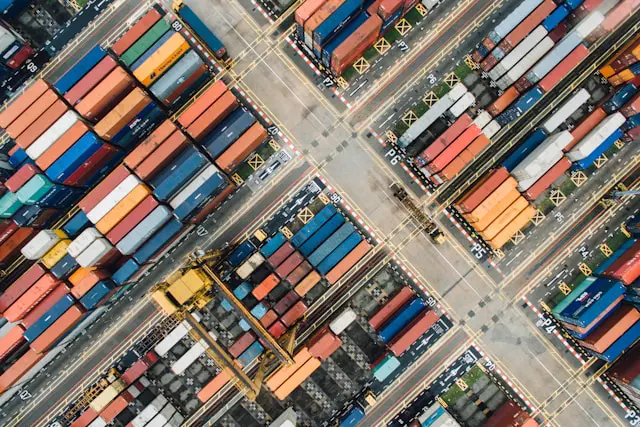Driving Integration for a Smarter Supply Chain in the Philippines
The Philippine Chamber of Commerce and Industry (PCCI) is spotlighting the urgent need to tighten coordination between government bodies and private logistics players, aiming to build a seamless, tech-savvy, and globally competitive supply chain. With cargo volumes rising and neighboring ASEAN countries stepping on the innovation gas, this move isn’t just timely—it’s essential.
The Landscape of Philippine Logistics Challenges
The logistics game in the Philippines faces hurdles that put its long-term edge at risk. Compared to regional heavyweights like Singapore and Malaysia, the country still lags behind in setting up tech-driven logistics zones, last-mile delivery innovation, and efficient intermodal systems. Being an archipelago adds a layer of complexity and cost, but that should be fuel, not a brake, for accelerated innovation.
Michael Tan, PCCI’s Transport & Logistics Committee director, points out that smart infrastructure combined with digital adoption lays the groundwork for a supply chain ready for global competition. Without these, the Philippines risks falling behind in this fast-moving sector.
Digital Integration: The Game-Changer
Pierre Carlo Curay, chair of the PCCI Supply Chain & Logistics Committee, brings home the critical message: every second wasted in adopting tech is a lost opportunity for trade expansion. Tech doesn’t just level the playing field—it opens doors wide open.
Imagine a logistics ecosystem where shipments are tracked in real time, customs clearance is digital, and routes are optimized instantly. The payoff? Lower costs, fewer delays, and a magnet for more trade and investment. This kind of digital backbone could be the game-changer the industry is waiting for.
Working Together: Government and Private Partnerships
Strong alliances between government agencies such as the Bureau of Customs, Department of Transportation, and Department of Trade and Industry, alongside private logistics providers, are the cornerstone of building this connected logistics ecosystem. The PCCI underscores this need for closer integration to realize a smooth and efficient freight and cargo flow across the country.
Bridging Policy and Practice for Supply Chain Modernization
The Chamber plays a pivotal role in translating government policies into practical improvements. For instance, its partnership with the Department of Trade and Industry helps support the government’s 3-Year Food Logistics Action Agenda. This agenda aims to upgrade the food supply chain with better logistics, enhanced cold chain facilities, and port modernization—critical moves to boost the reliability and freshness of food deliveries nationwide.
Further collaboration with the Philippine Economic Zone Authority encourages micro, small, and medium enterprises (MSMEs) to settle in economic zones, weaving them into the local supply chain fabric and linking them with foreign investors.
Pushing for Digital Customs and Integrated Transport Corridors
To eliminate unnecessary friction in freight movement, the Chamber works hand-in-hand with government entities to fast-track the adoption of electronic customs clearance, real-time cargo tracking platforms, and integrated transport corridors connecting key ports, airports, and economic zones. This holistic approach aims to create a well-oiled logistics network that’s not just fast but smarter and more cost-effective.
Advocacy and Vision: Shaping the Future of Philippine Logistics
The PCCI has been relentless in advocating reforms geared towards digitized port systems, modern logistics parks, and regional intermodal hubs. By pooling business expertise and blending it with infrastructure development and policy initiatives, the organization envisions the Philippines not only keeping up with ASEAN neighbors but emerging as a future-ready logistics hub.
Looking ahead, these themes of innovation and partnership will take center stage at the upcoming PCCI 51st Philippine Business Conference & Expo. Stakeholders will come together to draft a unified logistics and connectivity roadmap, harmonizing government projects like Build Better More with private sector creativity to slash costs and widen digital access across the archipelago.
Highlights and The Real Deal of Philippine Logistics Transformation
This conversation about stronger integration and digital adoption isn’t just dry policy speak; it’s the heartbeat of a logistics overhaul that could transform how goods move across the Philippines and beyond. However, no matter how insightful reviews or reports are, nothing beats firsthand experience when it comes to logistics shopping. On GetTransport.com, you can access the best global cargo transportation deals, empowered by transparent pricing and vast options. This platform gives shippers the power to choose smartly, avoiding unnecessary costs or headaches.
Through GetTransport.com, users enjoy ease, affordability, and a range of services—whether it’s office moves, home relocations, freight shipments of large furniture, vehicles, or bulky goods. This aligns perfectly with the ongoing modernization wave reshaping supply chains.
Book your Ride at GetTransport.com
What This Means for Logistics and Supply Chains
The initiative to boost cooperation between government and private logistics sectors in the Philippines promises to accelerate supply chain efficiency, both domestically and in international trade lanes. While its global impact might be modest compared to bigger economies, domestically, it marks a critical shift toward competitiveness and innovation.
For logistics providers, embracing these developments means getting ahead of the curve. It also exemplifies how a platform like GetTransport.com fits into this picture by offering a flexible, affordable conduit for cargo shipping needs, reflecting the sector’s digital and integrative future.
Start planning your next delivery and secure your cargo with GetTransport.com.
Summary
The drive for stronger integration between Philippine government agencies and private logistics providers is a timely push to tackle existing challenges in the archipelago’s supply chain. Digital adoption, unified infrastructure development, and collaborative policy implementation form the pillars of this transformation. These changes are vital for the Philippines to keep pace with fast-moving ASEAN neighbors and emerge as a competitive regional logistics hub.
Platforms like GetTransport.com are a natural fit for this new logistics landscape—offering reliable, global freight and cargo transportation services that cater to everything from everyday parcels to large-scale relocation and bulky freight. This service simplifies shipping by connecting users with the best affordable options worldwide, helping meet the demands of a smarter, integrated logistics future.

